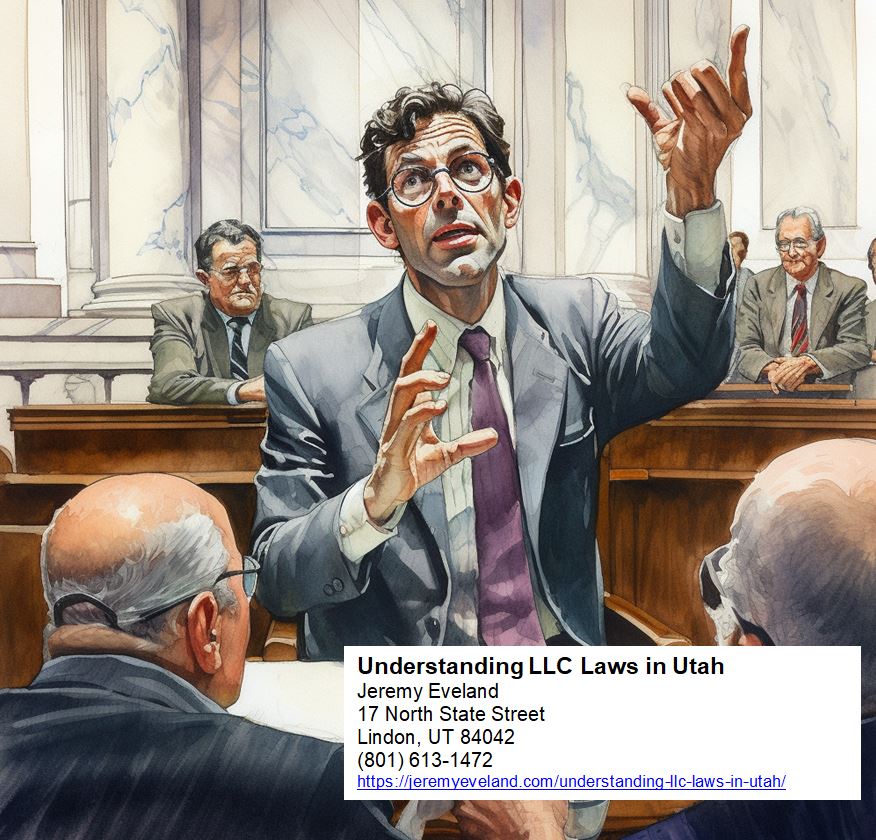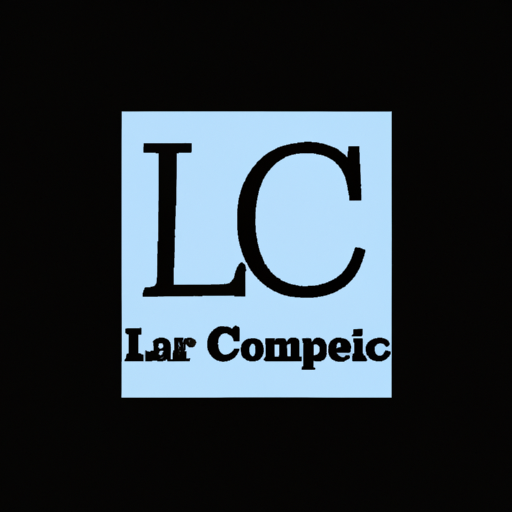When establishing a business, it is of utmost importance to understand the necessary requirements for forming a business entity. This article aims to provide you with comprehensive insights into the key elements needed to create a successful business entity. By examining the legal framework and regulations, you will gain a clear understanding of the necessary steps to take when forming a business. Whether you are a start-up entrepreneur or a seasoned business owner looking to expand, this article will equip you with the knowledge to navigate the complexities of forming a business entity.

Choosing a Business Entity
When starting a business, one of the first decisions you’ll need to make is choosing the right business entity. This decision will have significant implications for the way your business operates, as well as your personal liability and tax obligations. Here are some common types of business entities to consider:
Sole Proprietorship
A sole proprietorship is the simplest form of business entity. It is owned and operated by a single individual, and there is no legal distinction between the owner and the business. As a sole proprietor, you have complete control over your business, but you are personally liable for all debts and obligations. This means that if your business fails to meet its financial obligations, your personal assets could be at risk.
Partnership
A partnership is a business entity owned by two or more individuals who agree to share the profits and losses of the business. There are two main types of partnerships: general partnerships and limited partnerships. In a general partnership, all partners are jointly and severally liable for the debts and obligations of the business. In a limited partnership, there are both general partners and limited partners. General partners have unlimited liability, while limited partners have limited liability.
Limited Liability Company (LLC)
A limited liability company (LLC) is a popular choice for many small businesses. It provides the limited liability protection of a corporation while offering the flexibility and simplicity of a partnership. With an LLC, the owners, known as members, are shielded from personal liability for the company’s debts and obligations. Additionally, an LLC offers pass-through taxation, meaning that the company’s profits and losses are passed through to the owners’ personal tax returns.
Corporation
A corporation is a distinct legal entity that is separate from its owners. It is owned by shareholders and managed by a board of directors. One of the key benefits of a corporation is limited liability protection, which means that the shareholders are not personally liable for the company’s debts and obligations. However, forming and operating a corporation requires more formalities and record-keeping than other business entities.
Non-Profit Organization
Non-profit organizations are formed for charitable, educational, religious, or scientific purposes. These organizations do not distribute profits to their members or owners, but instead use the funds for their stated mission. Non-profit organizations must obtain tax-exempt status from the IRS and comply with specific regulations related to their non-profit status.
Business Name Registration
Once you have chosen a business entity, the next step is to register your business name. Registering your business name is important for establishing your brand and protecting your rights to the name. Here are some important steps to follow in the business name registration process:
Checking Name Availability
Before you can register your business name, you need to ensure that it is not already in use by another entity. You can do this by conducting a name search through the Secretary of State’s office or using online business name databases. It is important to choose a unique name that accurately represents your business and is not likely to be confused with another company.
Registering a Trade Name
If you plan to operate your business under a name other than your legal entity’s name, you will need to register a trade name, also known as a “Doing Business As” (DBA) name. Registering a trade name allows you to conduct business under a different name without having to create a separate legal entity. This is common for sole proprietors and partnerships that want to use a different name to represent their business.
Obtaining a Name Reservation
If you want to reserve a specific business name for future use, you can apply for a name reservation with the Secretary of State’s office. This allows you to protect your desired business name for a certain period of time before officially registering it. A name reservation is particularly useful if you are in the process of setting up your business but need more time to finalize your legal entity formation.
Articles of Incorporation/Organization
When forming a corporation or LLC, you will need to draft and file articles of incorporation or articles of organization, respectively. These documents are filed with the Secretary of State’s office and officially establish your business entity. Here are some important considerations when preparing these articles:
Drafting the Articles
The articles of incorporation or organization outline the key details of your business, such as the name, address, and purpose of the entity. They also specify the organizational structure, including the roles and responsibilities of shareholders, directors, and officers. It is important to carefully draft these articles to ensure they accurately reflect your business’s intentions and comply with state laws.
Including Required Information
In addition to the basic details of your business, you will need to include specific information required by the Secretary of State. This may include the names and addresses of the initial directors or managers, the registered agent’s contact information, and the duration of the entity. Failing to include the necessary information may result in delays or rejection of your filing.
Filing the Articles
Once you have completed the articles of incorporation or organization, you must file them with the Secretary of State’s office. This typically involves submitting the documents, along with the required filing fee, either online or by mail. After the filing is accepted, you will receive a certificate of incorporation or organization, which serves as proof of your business’s existence.
Registered Agent
When forming a corporation or LLC, you will need to designate a registered agent. A registered agent is the person or entity responsible for receiving legal and official correspondence on behalf of your business. Here are some important considerations when appointing a registered agent:
Role of a Registered Agent
A registered agent serves as the main point of contact for legal and administrative matters involving your business. They receive important documents, such as lawsuits, tax notices, and government correspondence, and ensure that you receive them in a timely manner. A registered agent must have a physical address in the state where your business is registered and be available during regular business hours.
Requirements for a Registered Agent
To serve as a registered agent, an individual or entity must meet certain requirements. They must have a physical address in the state of registration, not a P.O. Box, and be available to receive mail and other communications during regular business hours. Some states also require the registered agent to have a business presence, such as an office or staff, in the state.
Appointing a Registered Agent
When filing your articles of incorporation or organization, you will need to provide the name and contact information of your registered agent. This ensures that legal and official documents are properly directed to your business. You can appoint yourself as the registered agent, but it is often beneficial to hire a professional registered agent service if you prefer to maintain privacy or need a reliable point of contact.
Business Licenses and Permits
Depending on the nature of your business and your location, you may need to obtain various licenses and permits to operate legally. Failure to obtain the necessary licenses and permits can result in fines, penalties, or even the closure of your business. Here are some important steps to follow when obtaining the required licenses and permits:
Determining Required Licenses
To determine the licenses and permits needed for your business, you must consider factors such as your industry, location, and specific activities. Different businesses are subject to different regulations, so it is important to research and understand the requirements that apply to your particular business. This may include licenses at the federal, state, and local levels.
Obtaining Federal Licenses
Certain businesses require federal licenses or permits, particularly if they are involved in regulated activities such as broadcasting, aviation, or the sale of alcohol, firearms, or pharmaceuticals. To obtain federal licenses, you must submit an application to the relevant federal agency, provide the necessary documentation, and pay any required fees. Examples of federal agencies that issue licenses include the Federal Communications Commission (FCC) and the Alcohol and Tobacco Tax and Trade Bureau (TTB).
Obtaining State and Local Licenses
In addition to federal licenses, many businesses also require state and local licenses or permits. These can vary widely depending on your location and the specific activities you engage in. Common examples include business licenses, professional licenses, health permits, and zoning permits. To obtain these licenses, you must typically submit an application to the appropriate state or local agency, provide supporting documentation, and pay the required fees.
Business Tax ID
A business tax identification number, also known as an Employer Identification Number (EIN), is required for most businesses. This unique nine-digit number is used to identify your business for tax purposes. Here are some key steps to follow when obtaining a business tax ID:
EIN Application
To obtain an EIN, you must submit an application to the Internal Revenue Service (IRS). You can complete this application online through the IRS website, or you can mail or fax a completed Form SS-4. The application will require you to provide information about your business, such as its legal name, address, and type of entity. Once approved, you will receive your EIN immediately or within a few days, depending on the method of application.
Obtaining a Utah State Tax ID
In addition to the EIN, you may also need to obtain a Utah State Tax ID if you plan to conduct business in Utah. This ID is required to report and pay state taxes, such as sales tax or employee withholding tax. You can apply for a Utah State Tax ID through the Utah State Tax Commission’s website or by submitting an application by mail. The requirements and process may vary depending on your business’s specific activities and tax obligations.

Operating Agreements/Bylaws
An operating agreement or bylaws is a legal document that outlines the internal structure, procedures, and rules of your business. While not legally required for all business entities, having an operating agreement or bylaws is highly recommended. Here are some important considerations when drafting these documents:
Drafting an Operating Agreement/Bylaws
An operating agreement is used for LLCs, while bylaws are used for corporations. Both documents serve as a roadmap for how your business will operate and can help prevent disputes among owners. When drafting an operating agreement or bylaws, it is important to consider the specific needs and goals of your business. Additionally, it is wise to seek legal counsel to ensure that your agreements comply with applicable laws and regulations.
Including Essential Provisions
Operating agreements and bylaws typically include provisions related to membership or shareholder rights and responsibilities, decision-making processes, profit sharing or dividend distribution, voting procedures, dispute resolution mechanisms, and other important topics. Including these provisions ensures that all parties involved have a clear understanding of their rights and obligations, and helps prevent misunderstandings or conflicts down the road.
Filing Annual Reports
As a business entity, you will likely be required to file annual reports with the Secretary of State’s office. These reports provide updated information about your business and help ensure that it remains in good standing. Here are some important steps to follow when filing annual reports:
Understanding Annual Reporting Requirements
Each state has its own requirements for annual reports, including the filing deadline and the information that must be included. Typically, the annual report will require you to provide basic details about your business, such as its name, address, and registered agent’s information. Some states may also require you to disclose financial information or provide updates regarding changes to your business.
Completing and Submitting Annual Reports
To complete an annual report, you will need to gather the required information and prepare the report according to the designated format. This may include completing an online form, filling out a paper form, or providing the necessary information through a specific online portal. Once the report is completed, you must submit it to the Secretary of State’s office before the filing deadline. Failure to file annual reports can result in penalties or the loss of your business entity’s good standing.

Maintaining Records and Compliance
Businesses are required to maintain accurate and up-to-date records to ensure compliance with state and federal laws. Proper recordkeeping is essential for various reasons, including tax reporting, liability protection, and financial transparency. Here are some key considerations for maintaining records and ensuring compliance:
Recordkeeping Obligations
As a business owner, you should keep records of important documents such as articles of incorporation or organization, operating agreements or bylaws, financial statements, tax returns, contracts, employee records, and minutes of meetings. These records should be organized and easily accessible in case of audits, legal disputes, or other business needs. Good recordkeeping practices also demonstrate the legitimacy and professionalism of your business.
Compliance with State Laws
Every state has its own laws and regulations that businesses must comply with. This can include requirements for annual reports, tax filings, employee benefits, licensing, and other specific obligations. It is essential to stay informed about the laws that apply to your business and ensure that you are meeting all necessary requirements. Failing to comply with state laws can result in fines, penalties, or even the dissolution of your business entity.
Compliance with Federal Laws
In addition to state laws, businesses must also comply with various federal laws and regulations. This can include tax reporting and payment obligations, employment laws, environmental regulations, consumer protection laws, and more. It is crucial to understand and comply with these federal requirements to avoid legal issues and maintain your business’s reputation.
Business Insurance
Obtaining adequate business insurance is essential for protecting your business and mitigating potential risks. Here are some important considerations regarding business insurance:
Types of Business Insurance
There are several types of business insurance to consider, depending on the nature of your business and the specific risks it may face. Common types of business insurance include general liability insurance, property insurance, professional liability insurance, workers’ compensation insurance, and commercial auto insurance. It is important to assess your business’s unique needs and consult with an insurance professional to determine the appropriate coverage.
Importance of Business Insurance
Business insurance provides financial protection in the event of accidents, lawsuits, property damage, or liability claims. It can help cover the costs of legal fees, medical expenses, property repairs, and other unforeseen expenses. Without adequate insurance coverage, your business may be at risk of significant financial loss or even bankruptcy in the event of an unforeseen event or claim.
Obtaining Adequate Coverage
To obtain the right business insurance coverage, it is recommended to consult with an insurance professional who specializes in commercial insurance. They can assess your business’s specific needs, help you understand the available options, and tailor a policy to provide appropriate coverage. It is important to regularly review and update your insurance coverage as your business evolves and its needs change.
In conclusion, forming a business entity involves various legal requirements and considerations. By carefully choosing the right business entity, registering your business name, establishing proper governance documents, obtaining necessary licenses and permits, obtaining a tax ID, maintaining records and compliance, and securing appropriate insurance coverage, you can set yourself up for success and protect your business for the long term.
Frequently Asked Questions
-
Do I need to register a trade name if I am a sole proprietor?
Yes, if you plan to operate your business under a name other than your legal name, you will need to register a trade name, also known as a DBA name.
-
What is the difference between an LLC and a corporation?
The main difference between an LLC and a corporation lies in their structure and tax treatment. An LLC offers more flexibility in terms of management and taxation, while a corporation provides limited liability protection and distinct legal entity status.
-
How do I obtain an EIN for my business?
You can obtain an Employment Identification Number (EIN) by applying online through the Internal Revenue Service (IRS) website or by submitting a completed Form SS-4 by mail or fax.
-
What are annual reports, and why are they important?
Annual reports are documents that businesses must file with the Secretary of State’s office on a yearly basis. They provide updated information about the business and ensure that it remains in good standing with the state.
-
What type of business insurance do I need?
The type of business insurance you need depends on the nature of your business and the specific risks it faces. It is recommended to consult with an insurance professional to assess your needs and determine the appropriate coverage.


















